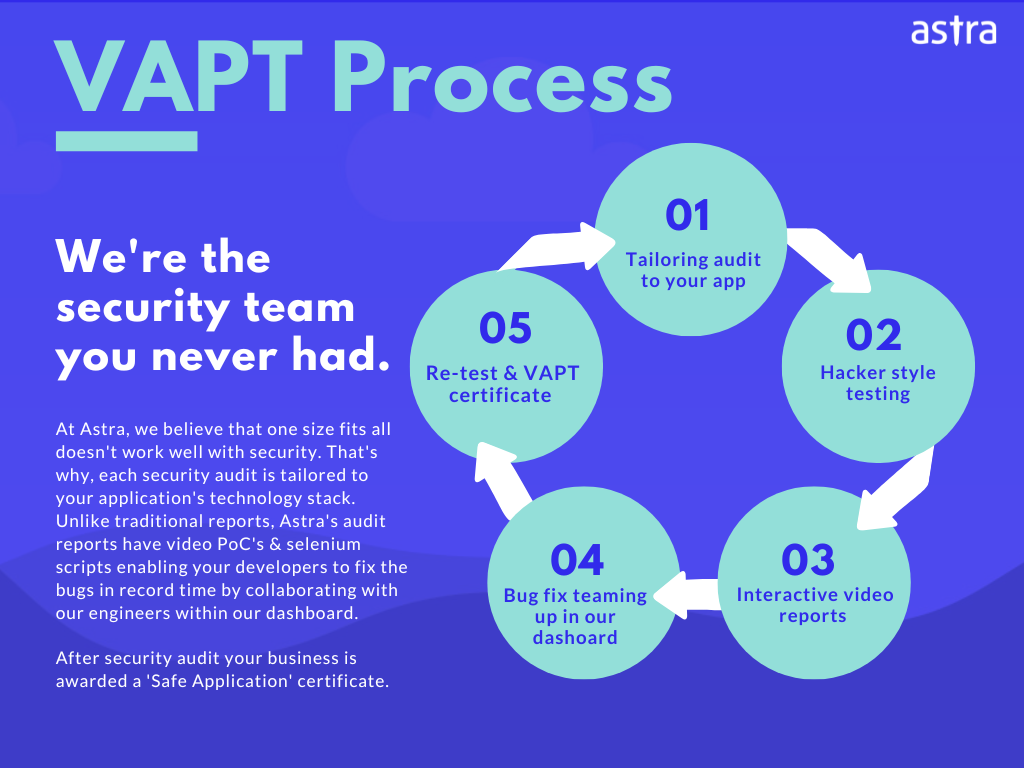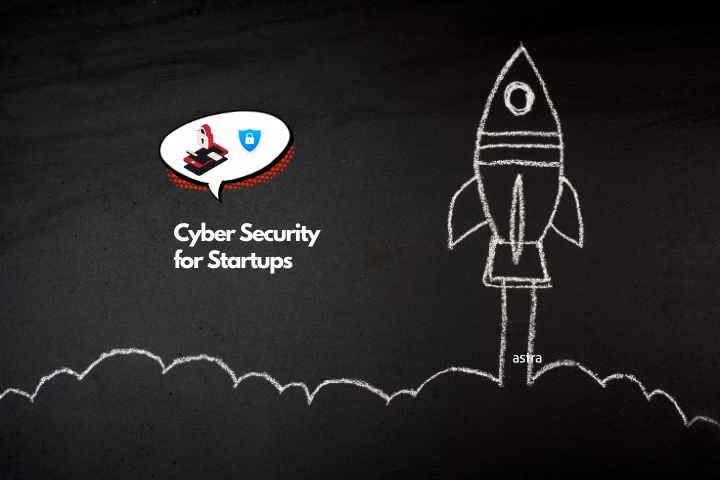Cybersecurity is a daunting subject for most small and new businesses. They don’t have the budget to hire the best in the field to take care of their security. These small businesses need practical solutions and advice to protect their business.
Big businesses are investing millions in cyber security, and you might think that you don’t have to because you don’t have that much to lose. But that is not the case. A breach can quickly sink you before you have a chance to reach your potential if you are not prepared.
This blog will look at a few of these practical cyber security tips & solutions for protecting your business.
- Scanner capabilities - web app, cloud app, network
- Accuracy: Zero false positive
- Scan behind login - Yes
- Compliance: Yes
- Reports: Detailed
- Security expert remediation: Yes
- Cost: $1,999 - $5,999
Importance of Cyber Security for Startups
As a startup, it’s essential to have a robust cyber security plan in place. This is because you are likely to be a target for cyber attacks due to your lack of established security protocols. Having a plan in place can minimize the damages caused by a breach and keep your business running smoothly.
Cyber attacks can cause significant financial and reputation damage and even put your business out of operation.
The average cost of a cyber attack is $4 million, and the average time to recover from an attack is six months. Cyber attacks can also cause significant reputational damage, as they can be publicized and cause customers to lose trust in a company.
Benefits of Implementing Security Controls
There are many benefits to implementing proper cybersecurity controls within an organization. Perhaps most importantly, these controls can help to prevent sensitive data from being compromised by cybercriminals.
Also, by implementing proper security controls, organizations can help to ensure compliance with industry regulations, such as the Payment Card Industry Data Security Standard (PCI DSS).
Furthermore, proper security controls can help to protect an organization’s critical infrastructure from being disrupted by cyber attacks. Finally, by implementing adequate cyber security controls, organizations can help to build trust with their customers and business partners.
Why Startups are a Source of Juicy Targets for Hackers?
There are a few key reasons why startups are such juicy targets for hackers. First and foremost, startups typically have fewer resources and fewer people dedicated to security than larger companies. This means that there are more opportunities for hackers to exploit vulnerabilities.
Second, startups are often focused on growth and innovation, making them more likely to take risks. This can include using new and untested software, which can be full of security holes. Hackers know this and are always on the lookout for new startups to target.
Third, many startups are built on cutting-edge technology. This can make them more attractive to hackers, who are always looking for new ways to exploit systems. Additionally, the very nature of startups means that they are constantly changing and evolving, which can create new security vulnerabilities.
Cyber Security Tips to Protect your Startup from Cyber Attacks
As a startup, it’s essential to have a robust cyber security plan in place. This includes having the proper tools and processes in place to protect your data and systems from attack. Below mentioned are a few cyber security tips which startups can use in order to avoid and prevent cyber attacks.
1. Enforce a Strong Password Policy
Require employees to use strong passwords that are at least eight characters long and include a mix of uppercase and lowercase letters, numbers, and symbols. Encourage them to change their passwords regularly, and make it easy for them to do so by using a password management tool.
In addition to requiring strong passwords, you should also have a process in place for managing passwords. This includes creating and storing passwords in a secure location and sharing them only with those needing them. You can use password managers such as 1Password (Commercial) and BitWarden (Open-Source).
2. Using VPNs
Another way to protect your startup is to use a VPN or virtual private network. A VPN creates a secure, encrypted connection between your computer and the VPN server. This connection makes it difficult for hackers to intercept your data. A VPN can also help to mask your IP address, making it harder for cybercriminals to track your online activity.
Using a VPN is a smart way to protect your startup from cyber attacks. Be sure to choose a reputable VPN provider and follow their security guidelines to keep your data safe.
Moreover, the flexibility of VPNs extends beyond basic security measures. For example, a VPN for Apple TV can significantly enhance streaming security and expand access to geo-restricted content. This feature makes it an invaluable tool for startups that rely on diverse media sources for market research or presentations.
3. Disable Staging Instances for Public
As a startup, you are likely to be using staging instances to test new features and products before making them live for your customers. However, it is essential to disable staging instances for public access to avoid cyber attacks.
By disabling public access to your staging instances, you can help to mitigate the risk of cyber attacks. This can be done by ensuring that only authorized users have access to the instances and by regularly monitoring the security of your staging environment.
4. Conduct Pentests
Startups should conduct regular penetration tests to ensure their systems are secure and to avoid costly cyber attacks. Penetration testing simulates an attack on your system to find vulnerabilities that an attacker could exploit.
By doing so, you will be able to identify any weaknesses in your system and take steps to fix them. This will help to keep your system secure and reduce the chances of an attack.

5. Secure SDLC
By following a secure SDLC, organizations can reduce the risk of vulnerabilities and ensure that their applications are more resilient to attacks. There are several important elements to a secure SDLC, including secure coding practices, static and dynamic code analysis, and regular security testing.
Organizations that implement a secure SDLC can help to reduce the risk of cyberattacks and ensure that their applications are more secure.
6. Regularly Update Software & Systems
One of the most important aspects of keeping software and systems up to date is ensuring that security patches and updates are applied promptly.
In addition to security patches, it’s also important to keep software and systems up to date for performance and stability reasons. Outdated software can be more prone to crashes and other issues, so keeping everything as up-to-date as possible is essential.
Conclusion
If you’re a startup on a budget, cyber security is a significant issue that shouldn’t be overlooked. The most important thing you can do is to be aware of the risks and to regularly check that your security is up to date and regularly conduct pentests. Cyber security services is something that all companies should consider, regardless of whether they’re a startup or established businesses.
Astra is a perfect choice if you are looking for a pentest partner. Astra is a leading provider of pentesting services and has a proven track record of helping companies secure their systems. We offer a comprehensive suite of services tailored to your specific needs. Book a demo to learn more.

















